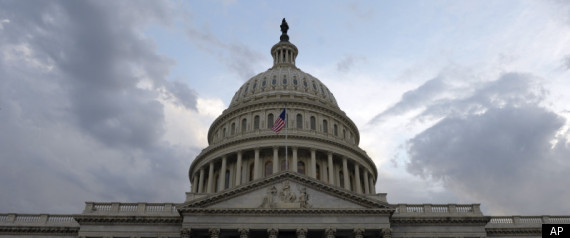 WASHINGTON -- When it comes to Medicare and Medicaid, the debt deal raises more questions than it answers.
WASHINGTON -- When it comes to Medicare and Medicaid, the debt deal raises more questions than it answers.The giant health care programs serving some 100 million elderly, low-income and disabled Americans were spared from the first round of cuts in the agreement between President Barack Obama and congressional leaders. But everything's on the chopping block for a powerful new congressional committee that will be created under the deal to scour the budget for savings.
And if that hunt leads to a dead end, the agreement decrees an automatic 2 percent cut to Medicare providers such as hospitals. That's on top of a 6 percent cut already enacted to finance Obama's health care law, which is just being phased in.
"The story isn't over," said Joe Baker, president of the Medicare Rights Center, a New York-based advocacy group. "The future of the programs really hangs in the balance. It could lead to deep cuts and irreversible changes to Medicare and Medicaid that shift costs to beneficiaries."
The hospital industry, which agreed to cuts of $150 billion to help pay for Obama's expansion of coverage to the uninsured, said Monday it's just about had it.
"America's hospitals find it difficult to support a debt ceiling proposal that could negatively affect Medicare for our nation's seniors," American Hospital Association president Rich Umbdenstock said in a statement. "Access to care could be curtailed by further cuts to Medicare funding for hospital care."
The debt deal would allow the government to keep borrowing and stave off an unprecedented default on obligations to investors, Social Security recipients, federal employees and others. But it comes at the price of squeezing the budget in ways that average Americans may not yet realize.
The first $900 billion in savings from the complex deal are not likely to have much impact on health care. It's the second round that counts, from $1.2 trillion to $1.5 trillion over 10 years.
"These guys haven't really solved anything – they have only set up a procedure to make cuts," said Robert Laszewski, a health care industry consultant. "We haven't seen the blood on the floor yet."
The White House is emphasizing that Medicaid for the poor and benefits guaranteed to seniors under traditional Medicare would not be touched if automatic reductions become necessary as a backstop.
But the new congressional "supercommittee" created under the deal is under no such restrictions. It can shape its own menu of cuts to Medicare, Medicaid and Obama's health care law, assuming the panel could get the votes to pass a package through Congress and buy-in from the White House.
"Nothing is off limits," said Paul Van de Water, a senior analyst with the Center on Budget and Policy Priorities, which advocates for the poor. "These debates are just going to continue."
For Medicaid, that means a new funding formula, proposed by the Obama administration and opposed by many governors, remains on the table. It would be used to dial down the amount of federal money states get for the health needs of their low-income people and long-term care patients in nursing homes.
For Medicare, it means the committee could push increases in copays and deductibles, as have two bipartisan commissions within the last nine months.
Medicare providers are nervous.
Doctors could be particularly exposed. Current law calls for an automatic cut of 30 percent in Medicare payments to doctors starting next year, the result of a previous budget control law gone awry. It's unthinkable that lawmakers would allow that to go through. But where Congress in previous years just waived the cut and added the cost to the deficit, that's not politically possible any more.
Drug companies are also hunkered down. Having agreed to help close the Medicare prescription coverage gap, as well as billions in new fees under the health care overhaul, they could now be on the hook for additional rebates to cover the drug costs of low-income seniors.
The budget supercommittee has a deadline for action around Thanksgiving. That has advocates mobilizing to stave off or contain the scope of cuts. One way to do that is to put tax increases back on the table.
"All of our work lies ahead of us," said Ron Pollack, executive director of Families USA, an advocacy group that battled for the health care overhaul. "We are not planning the next stage, because the process continues."
Origin
Source: Huffington
No comments:
Post a Comment